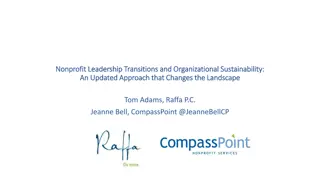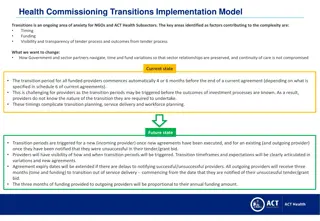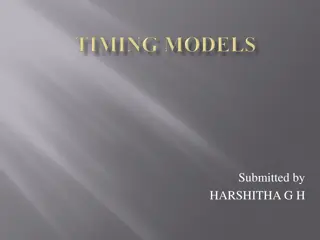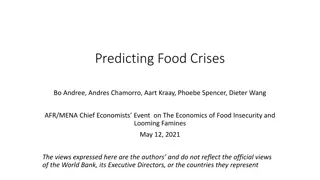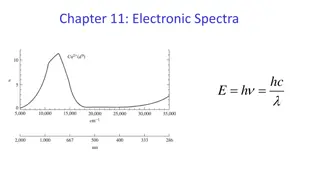Predicting Critical Transitions
This report delves into the concept of critical transitions and explores its implications in diverse fields, showcasing case studies and successful examples. From ecological shifts to neurological conditions, learn how predicting critical transitions can offer valuable insights. Discover the use of toy models and population-based data parameters in analyzing complex systems, and explore the intersection of critical transitions with baseball analytics. Gain a dynamic systems perspective on understanding critical transitions as a crucial element in different scenarios.
Download Presentation

Please find below an Image/Link to download the presentation.
The content on the website is provided AS IS for your information and personal use only. It may not be sold, licensed, or shared on other websites without obtaining consent from the author.If you encounter any issues during the download, it is possible that the publisher has removed the file from their server.
You are allowed to download the files provided on this website for personal or commercial use, subject to the condition that they are used lawfully. All files are the property of their respective owners.
The content on the website is provided AS IS for your information and personal use only. It may not be sold, licensed, or shared on other websites without obtaining consent from the author.
E N D
Presentation Transcript
Predicting Critical Transitions Final Report Keith Heyde
Predicting Critical Transitions: Case Study Lake Eutrophication Wang et al. 2012
Previous Successful (Published) Examples Stock Market (mixed results) Climate Flickering and critical slowing at Younger Dryas Cold Period Ecosystems- Vegetation and Desertification Agri/Aquaculture- Fishing stocks Neurological- Epilepsy/ Depression Leemput et al. 2013
Population Data Parameters: public good production (B2) Multiple equilibria (including zero) Sample data processing within MATLAB (autocorrelation and variance analysis) MASSIVE FAILURE Tanouchi et al. 2012
When the going gets tough The tough take on a new project! And hit it out of the park?
Baseball Crash Course (for our purposes) Players come up to the plate during the game Players try and hit the ball Players either get a hit or get out Players are commonly evaluated offensively by their batting average Is this a good metric?
Baseball Streak Analysis Classical
A Dynamical Systems Motivation Batting Batting Games Played Games Played
Underlying Structure? Motivation: Cool Videos Pay Attention http://www.sciencemag.org/content/suppl/201 2/09/19/science.1227079.DC1/1227079s1.mov http://www.sciencemag.org/content/suppl/201 2/09/19/science.1227079.DC1/1227079s2.mov http://www.sciencemag.org/content/suppl/201 2/09/19/science.1227079.DC1/1227079s3.mov (Sugihara, 2012)
Underlying Structure? Time Delay Lag 4 Change in BA vs BA 0.7 0.4 0.6 0.3 0.5 0.2 0.4 0.1 0.3 0 0 0.1 0.2 0.3 0.4 0.5 0.6 0.7 0.2 -0.1 0.1 -0.2 0 0 0.1 0.2 0.3 0.4 0.5 0.6 0.7 -0.3
Conclusions and Next Steps Conclusions Next Steps Preform a more comprehensive analysis on chaotic signals in baseball Early warning signs for bistable critical transitions do not seem to fit for baseball hitting signal Multi-dimensionality of signal Not enough granularity of data Compare trends for dimensionality of streaky players vs non-streaky See if there are any other metrics available to further refine phase space Larger dimension structures do appear to exist -> Even 2D structures seem to exist in time delay for many players Examine network dynamics of team to construct team dynamical system
Thanks! Thanks to Prof. Ross and all of my reviewers
















